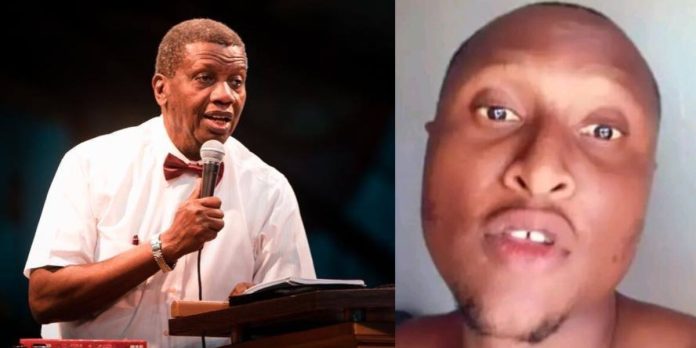The arrest of TikToker Olumide Ogunsanwo, known online as SeaKing, following a critical post about Pastor Enoch Adeboye of the Redeemed Christian Church of God (RCCG), has escalated into a legal standoff. SeaKing’s December 2024 TikTok video, in which he labeled Adeboye’s call for a 100-day fast “stupid,” prompted a petition by the Concerned Christian Youth Forum to the Lagos State Police Command, ultimately leading to SeaKing’s arrest. This sparked considerable backlash on social media and placed the incident firmly in the public eye. Adding another layer of complexity, Pastor Adeboye, during a recent church service, publicly distanced himself from the arrest, claiming ignorance of both the incident and the parties involved.
This apparent disavowal prompted the release of SeaKing on administrative bail after his legal team initially challenged the imposed bail conditions. However, the situation took another unexpected turn when the RCCG, through its Public Relations Department, issued a statement reaffirming its support for the arrest. The statement clarified that the youth group’s petition was filed on behalf of various religious leaders, including Pastor Adeboye. The RCCG emphasized its intention to allow the legal process to unfold, seemingly contradicting Adeboye’s earlier statement. The church stressed its respect for due process while maintaining that the law should run its course.
Inibehe Effiong, SeaKing’s legal counsel, reacted swiftly and strongly to the RCCG’s statement. He condemned the church’s position and issued a 24-hour ultimatum demanding a retraction of the statement, failing which he threatened legal action against both the church and Pastor Adeboye. Effiong argued that SeaKing’s fundamental rights had already been violated due to the length of his detention without sufficient legal grounds. He contended that the RCCG’s statement, aligning itself with the petitioners, necessitates the inclusion of Pastor Adeboye in any legal action pursued to protect SeaKing’s rights. This would potentially require Adeboye to testify and face cross-examination in any resulting criminal proceedings.
Effiong’s statement further criticized the use of law enforcement by religious leaders to suppress criticism. He warned that pastors who employ such tactics risk jeopardizing their credibility and urged them to leave matters of vengeance to divine justice. He emphasized that even when seeking redress through legal means, due process must be meticulously observed, urging a careful balance between pursuing justice and respecting individual rights. The situation highlights the tension between religious sensitivities, freedom of expression, and the appropriate use of legal mechanisms.
The core issue revolves around the conflicting narratives and actions of the involved parties. Pastor Adeboye’s initial denial of involvement contrasts starkly with the RCCG’s subsequent statement confirming his inclusion in the complaint. This inconsistency raises questions about internal communication and decision-making within the church, as well as the true nature of Adeboye’s stance on the arrest. The swift legal response from SeaKing’s lawyer underscores the potential ramifications of the RCCG’s statement, turning what initially seemed like a straightforward case of online criticism into a complex legal battle involving prominent figures.
The unfolding events highlight the challenges posed by online expression and its intersection with religious sensitivities. SeaKing’s TikTok video, while critical, falls within the realm of protected speech in many jurisdictions. The subsequent arrest and the RCCG’s response raise concerns about potential overreach and the chilling effect on free speech, particularly when influential religious figures are involved. The situation necessitates a nuanced examination of the balance between respecting religious beliefs and upholding the fundamental right to express opinions, even those considered offensive or disrespectful by some. The case serves as a stark reminder of the power of social media to amplify individual voices and challenge established authority, while simultaneously highlighting the potential for such platforms to become battlegrounds for competing ideologies and legal disputes.


